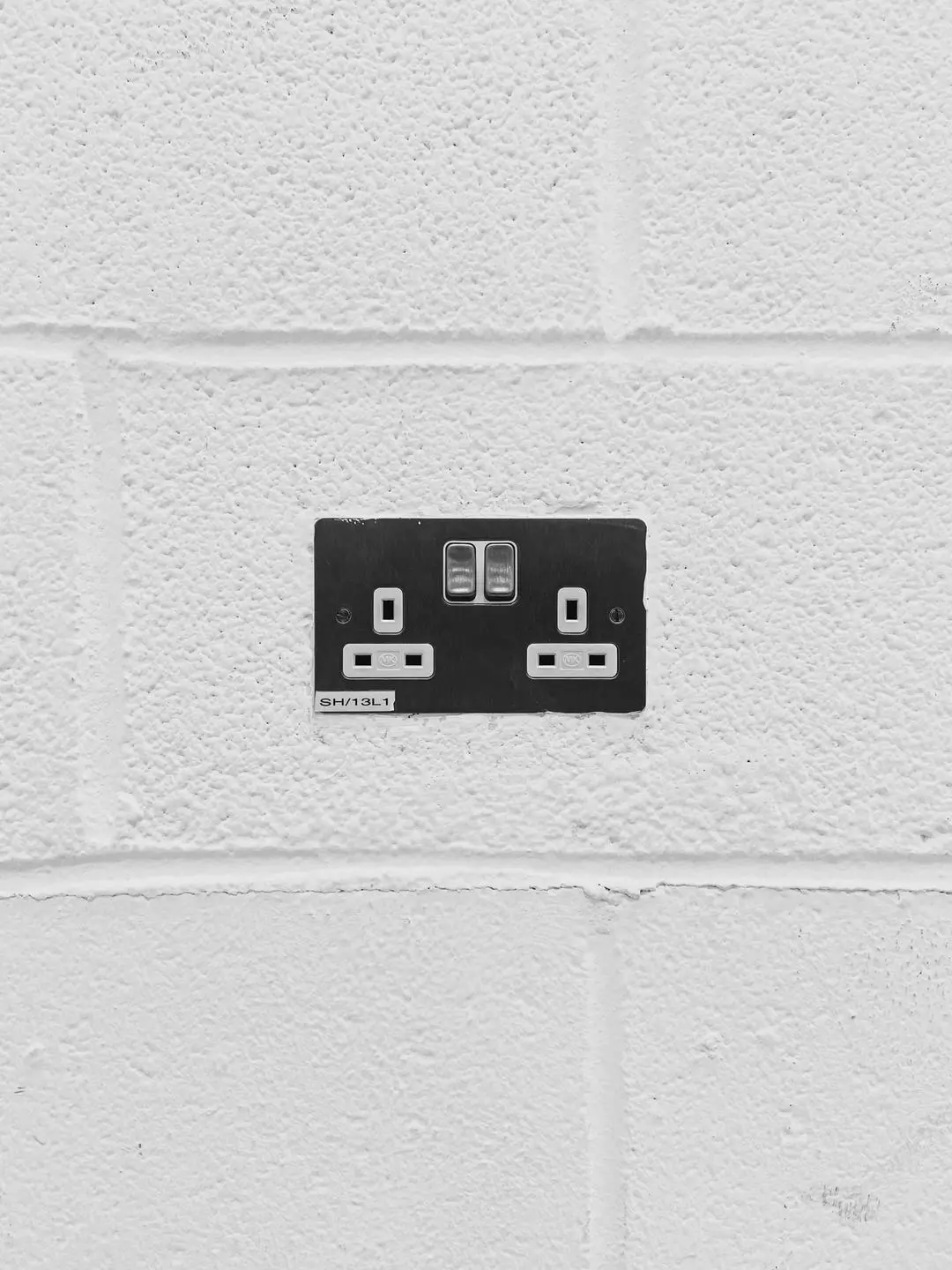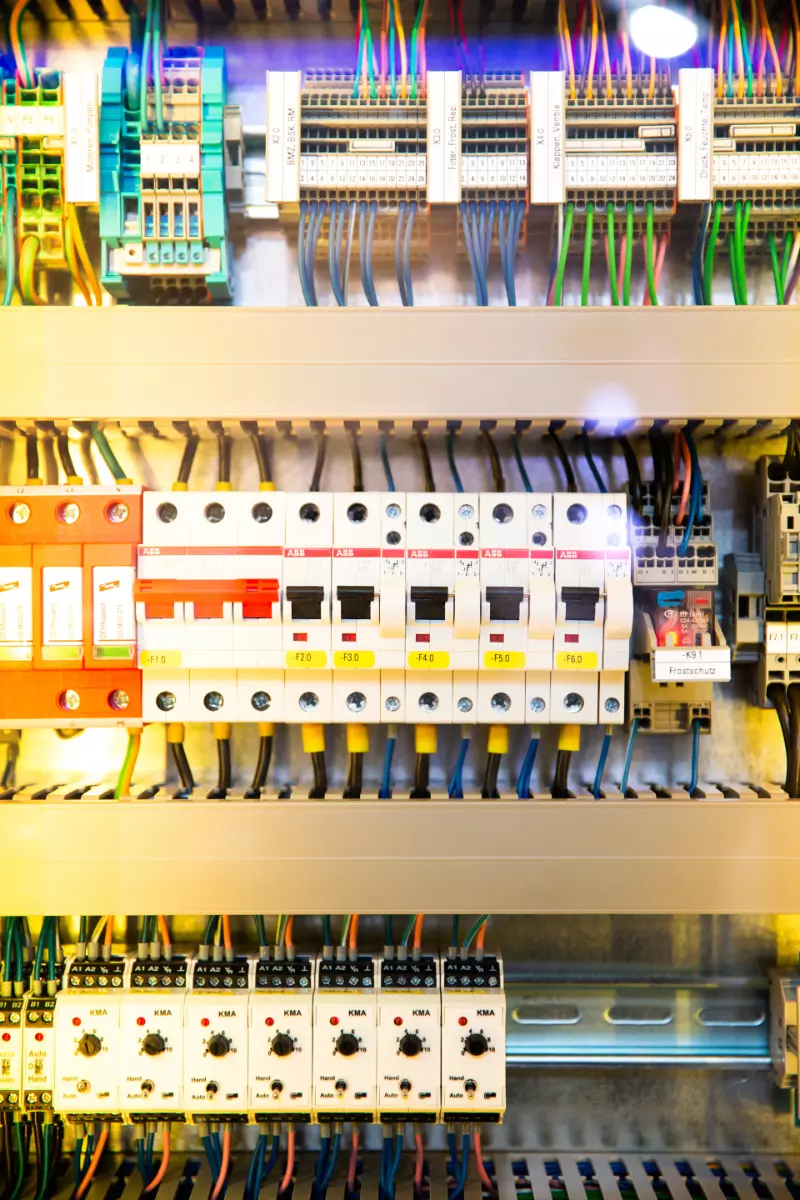What are the most common causes of electrical problems? We look at the most common electrical issues in your home that you need to look out for.
The Most Common Electrical Issues in Your Home
The electricity in your home is a modern necessity, meaning when you are facing issues with your electrical appliances, from electrical shocks, outages or electrical surges, they can literally leave you in the dark. Unless you're a qualified electrician, it's unlikely you'll know how to deal with faulty wiring and other electrical issues.
Therefore, to avoid anything more serious, such as hazardous charges and potential fire danger, it's always best to rely on qualified electricians when facing an electrical issue. However complicated or serious, homeowners encounter a host of common electrical issues.
From faulty appliances and electrical devices to electrical wiring issues and light fixtures, you're likely experiencing something along with millions of others. We'll start with three of the most common electrical problems professional electricians encounter in UK homes.
Circuit Breaker Problems
Circuit breakers are your home's first line of defence against overloads and short-circuiting. When it detects a fault in your electricity, it will interrupt the flow of electrical current to your electrical appliances and light fixtures. Therefore, if your circuit breaker engages and shuts off your electrical supply, it's a clear sign you have an electrical issue.
Scarce or Dead Outlets
Having too few electrical sockets in your home isn't only inconvenient, it can also lead to overloading.
For example, with limited access to sockets, you are forced to plug more appliances into the ones you do have, including forming a dangerous dependence on heavy-load extension cords, which can trip your circuits. This can cause further problems in your home, including increasing the likelihood of surges.
Additionally, dead sockets should not be messed with as they are a dangerous hazard. If one of your power sockets stops working, it either burned out or suffers from faulty wiring.
In either case, forcing a dead socket to work can lead to high heat and electrical fires. Having a professional electrician install new sockets in your home is the best solution.

Electricity Surges, Sags, or Dips
It may seem contradictory to link these events together, but electrical surges, sags and dips are all closely related. Power surges occur when there is a spike in the electrical charge within power lines, resulting in a rapid turning on and off of your electrical appliances. Surge protectors are available to safeguard your appliances, but if you experience frequent surges, call a professional electrician.
These surges can damage your electronics but are ultimately unavoidable. This is because they are caused by natural events, such as lightning strikes. Alternatively, repeat surges could indicate that your electricity provider is not doing their job properly or there are damaged power lines with loose wires or poor wiring in your local area. While the same issues cause power sags and dips, from damaged power lines to electrical faults, they have the opposite effect of power surges.
Rather than spiking the flow of electrical current to your home, they reduce it temporarily, known as "brown-outs". This will show itself through the light bulbs or power strips in your home temporarily dimming. Again, if this happens regularly, and isn't simply a matter of forgetting where your dim switches are set, have a professional electrician check your electrical system.
Poor circuit protection
If your property doesn't have a Residual Current Circuit Breaker (RCCB), you might face a current leak leading to a low-voltage circuit.
These devices protect you from electric shocks, indirect currents, burnt wires and electrical fires, so they are well worth investing in for your safety.
Grounding Issues
Another protective measure to prevent electric shocks, fires and overheating wires are Ground Fault Circuit Interrupters (GFCIs). Most electrical appliances and electrical systems in the UK are fitted with a grounding system to allow any excess current to flow to the earth in case a short circuit occurs.
However, ensuring your entire property has adequate grounding with high-quality ground wire is the best way to remain safe. You also might consider purchasing a GFCI circuit tester or ohm meter and ensure your appliances are fitted with the right wiring appended to the three-prong plug, such as a white neutral wire and screws provided.
Electrical Shocks
Even if you only experience a mild shock when turning an appliance or a switch on or off, it's a serious sign of an electrical problem with the appliance or socket, potentially faulty wiring.
Try using a different appliance in the same socket, and if you get the same result, have a professional electrician check the appliance or socket.
High Electricity Bills
If you are experiencing high electricity bills, there may be several reasons why. These include:
- Leaks in your electrical systems
- Faulty or damaged wiring or circuits
- Your electrical devices are old and consume more power than modern ones
If your appliances are drawing power at an expensive rate, try buying more cost-effective alternatives. You might also want to unplug any devices while you aren't using them. Finally, if it's only one wire that's damaged, you can repair it and determine which of your appliances is causing power surges.

Overloading
Using bulbs or appliances that demand a higher wattage or voltage than your sockets can accommodate increases your potential risk of melting your sockets or wire insulation, ultimately leading to electrical fires.
Therefore, always use the right wattage of bulb or appliance for your sockets and light fixtures.
Light Switches not working
If one of your light switches isn't working, it's likely a sign of poor quality work or sub-optimal products. It could also be a sign of faulty wiring, faulty circuits or a faulty outlet. Again, arrange for a professional electrician to check your sockets.
Uncovered junction box
Junction boxes are designed to keep different sections of wires in your home grid separate and orderly. If your junction box doesn't have cover plates, you run the risk of damaging these wires, which could lead to electric shocks and electrical fires.
Have a professional electrician cover your junction box with appropriate screw terminals.
Over-circuited panel
Electrical panels hold a set number of circuit breakers and all the neutral connections in your home, each of which has one slot. While tandem breakers resemble a pair of switches that look like they can fit into one of these slots, they need two single-pole breakers to accommodate them.
When you place a tandem breaker into a single panel slot, you have over-circuited it. In this case, your chosen electrician should install a panel that can handle a bigger load or add a sub-panel to your electrical system and existing panel.
Tripping circuit breaker
If you have too many high-power-consuming items or devices drawing power from your power supply, you increase the chances of your breakers tripping. While this is inconvenient, it's a good sign that your breakers are doing their job and protecting your home.
Reducing the number of appliances you have drawing power from your power grid supply will reduce the risk of circuit breaker trips. If the problem persists, call an electrician.
Backstabbed wires
Backstabbed wires are another term for wires with holes or bits missing from the insulating rubber that surrounds them. Backstabbed wires and frayed wiring present a significant risk of electrocution and should be repaired as soon as possible.
While you can switch off the device or appliance these wires are connected to and cover the holes with tape, this is only a temporary fix, so it is best to have the wires repaired properly.
Aluminium wiring
Aluminium wiring is far more likely to suffer oxidation when it conducts electricity. Therefore, when aluminium wires come into contact with other materials, such as fabrics, plastic or wood, they can cause an electrical fire.
A copper connection is a much safer metal to use in your wiring and is also cheaper than aluminium wires.
Lighting Problems
There are several reasons why your light bulbs are burning out more quickly than normal. These include:
- Too high wattage
- Inadequate air circulation
- High voltage
- Bad wiring in your mains supply or circuit
- You fixed your bulbs too tightly
You can try checking if your bulb holders are too loose to start with, but if you experience electrical burnouts repeatedly, call a professional electrician. Flickering lights, alongside those that are too bright or too dim, are another potential lighting issue you might encounter.
If some of your bulbs are brighter or dimmer than others, it may simply be the case that you have different wattages of bulbs in place. Alternatively, it could be a technical issue with your main power panel.

Are you looking for an emergency electrician in Ludlow and the surrounding areas of Shropshire? Contact our qualified electrician for domestic and commercial electrical services near you.

